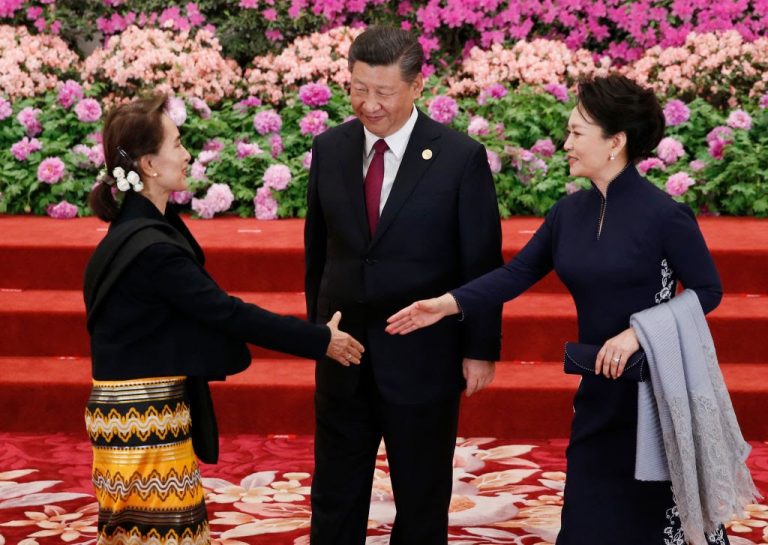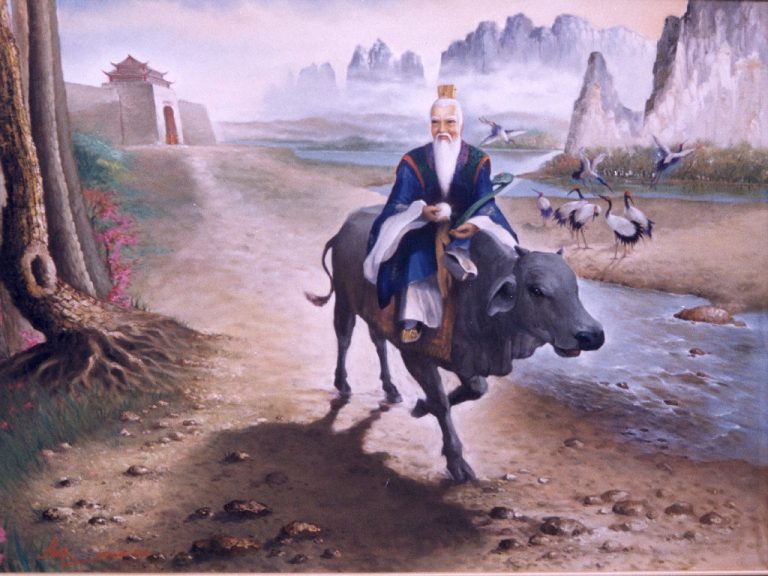After Myanmar’s military coup in early February, tensions are running high in the country, with news of casualties from the military’s violent crackdown on civil protests. Burmese media reported that while the U.S. called on the military to restrain and abandon the coup, the Chinese Communist Party (CCP) not only helped the military build a Chinese-style internet firewall, but at least five Chinese state-owned enterprises provided arms to the military, triggering Burmese people to protest angrily outside the Chinese embassy.
As tensions continue to rise, the military announced a move into the city on Feb. 17. In Yangon, many people parked their cars in the middle of the road to stop the military from entering the city. Videos circulating on the Internet showed armored vehicles and armed police were everywhere in the city.
On Feb. 9 in the country’s capital, Naypyidaw, police fired shots in the air. Rubber bullets and water cannons were used to crack down on demonstrators, and at least four people were injured and sent to the hospital. A 19-year-old woman was shot in the head with a bullet and died shortly after.

U.N. envoy Tom Andrews warned on Feb. 16 that “in the past, such troop movements preceded killings, disappearances, and detentions on a mass scale.” He said that “I am terrified that given the confluence of these two developments – planned mass protests and troops converging – we could be on the precipice of the military committing even greater crimes against the people of Myanmar.”
Myanmar internet shutdown
The secret trial of Aung San Suu Kyi and deposed President Win Myint began in mid-February, and the two are expected to appear in a video on the March 1 trial.
Success
You are now signed up for our newsletter
Success
Check your email to complete sign up
According to Burmese media, the military disconnected the internet in Myanmar from Feb. 14 to Feb. 28. NetBlocks, an internet tracking group, noted that there was almost a national internet disconnection from the evening of Feb. 14 to the early morning of Feb. 15 for about eight hours. It has been restored to a limited extent, but most users are still unable to use social media.
The Voice of America quoted a cybersecurity expert in Yangon, Myanmar’s largest city, saying that China has helped Myanmar build a cyber firewall to monitor and filter information sent and received by the public. China has provided essential technical assistance to the Burmese military. Chinese IT technicians and hardware arrived and firewall equipment has been sent to Myanmar’s network and telecommunications carriers.
The Chinese Embassy in Myanmar denied any role and forwarded a statement from the Myanmar Chinese Enterprises Chamber of Commerce, stating that the flights were regular cargo flights for the import and export of goods such as “seafood”.
According to Reuters, the military junta drafted a cybersecurity bill. The bill would require internet operators to prevent or remove content deemed “hateful and detrimental to unity and harmony” and specifically mentions “false news or rumors” and content “inappropriate to Burmese culture.” More than 150 Burmese civil society organizations said in a statement that the bill includes provisions that violate human rights, including civil rights such as freedom of expression, data protection and privacy.
China-Burma military cooperation
According to a new report released by the Burmese citizens’ group Justice for Myanmar, at least 16 foreign companies have supplied conventional arms and related items to Myanmar’s military, including five Chinese companies: China North Industries Group Corporation Limited (NORINCO), The Aviation Industry Corporation of China (AVIC), and the China Aerospace Science and Technology Corporation (CASC), The China Aerospace Science & Industry Corporation Limited(CASIC) and China National Aero-Technology Import & Export Corporation (CATIC).

According to a spokesman for “Justice for Myanmar,” NORINCO sold weapons to the Burmese military, which then used them against the Burmese people. In addition, NORINCO operates two copper mines in the area, such as the Letpadaung Copper Mine, which displaces the indigenous population and pollutes the environment. Meanwhile, the Chinese public and private enterprises have an intimate relationship with the Burmese military.
The spokesman quoted a U.N. document saying that the Burmese military used revenue from trade with China to support the national defence forces in their war against the Arakan Army in northern Myanmar and is a “serious violation of human rights.”
According to the report, 20 of the Burmese government’s 112 key business partners involve Chinese and Hong Kong funds, including China-based Wanbao Mining (Hong Kong) Copper Limited that operates the Letpadaung Copper Mine.
It is important to note that more than 90 percent of the 112 companies mentioned above have business cooperation with Myanmar’s two largest military companies, MEHL (Myanmar Economic Holdings Limited) and MEC (Myanmar Economic Corporation). The U.N. reported that the money for Min Aung Hlaing’s coup came from the two major military companies.
Protesting Beijing’s role
A large number of Burmese people gathered outside the Chinese embassy in Yangon on February 15, holding slogans and images criticizing Beijing and satirizing Chinese leader Xi Jinping. One of the press photos shows people holding up pictures of Xi Jinping controlling “puppet” Min Aung Hlaing, with slogans that read “Please stop China from helping the military coup” and “Please exile the Internet technicians from China now!
Since the coup in Myanmar, public discontent with the Chinese Communist Party has escalated, and there have been numerous reports on the internet of Chinese planes transporting technicians to Myanmar to help build a firewall.

Although the Chinese embassy in Myanmar later issued a statement saying that the Chinese planes that arrived in Myanmar on the 13th were not carrying technical personnel, but rather imported and exported goods such as seafood. However, this statement made “Chinese seafood” or “seafood” the subject of much ridicule by Burmese netizens.
Myanmar, which gained independence from Britain in 1948, has undergone several military coups, including the previous house arrest of pro-democracy leader Aung San Suu Kyi for 10 years. The U.S. also withdrew diplomats in 1990 and imposed a series of sanctions on the Burmese military government. However, Myanmar shares a 2,000-kilometer border with Yunnan Province of China, and has been deeply influenced by China’s economic, military and political support which consequently weakens the international sanctions. China is now not only Myanmar’s largest trading partner, but also the country’s largest supplier of military weapons. 60 percent of Myanmar’s weapons were imported from China between 2014 and 2018.
Myanmar is included in Beijing’s “One Belt, One Road” project, which has seen Chinese companies entering the country’s various industries such as internet, oil and gas, fiber optic networks, power, roads and ports, and the Burmese government. Huge loans from Chinese state-owned enterprises and banks have gained several key ports of Myanmar to China, strengthening China’s grip on the Indian Ocean.
In fact, the U.S. had intended to slowly lift sanctions after the Burmese junta agreed in 2011 to release pro-democracy leader Aung San Suu Kyi under continued U.S. sanctions. However, then-President Barack Obama personally visited Myanmar in November 2012, breaking a 30-year record of U.S. presidential non-visits. In 2016, then-Secretary of State John Kerry intended to continue using economic sanctions to force Myanmar to amend its constitution, but in September, Obama announced the removal of sanctions, depriving the U.S. of any leverage to advance Myanmar’s democracy.
Follow us on Twitter or subscribe to our email list













